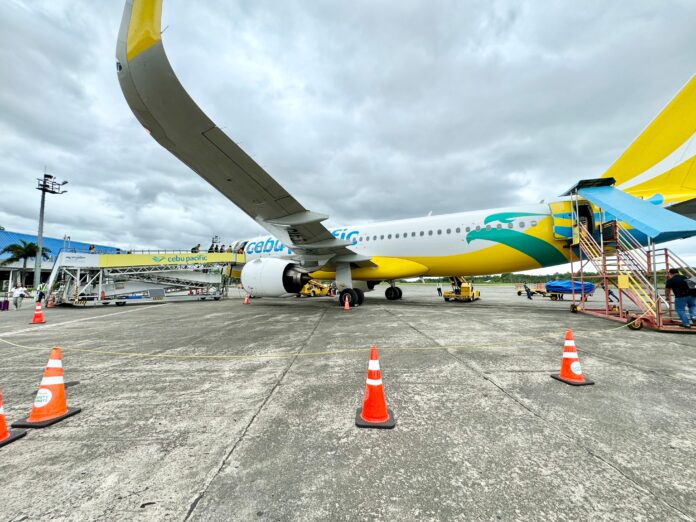Cebu Air, Inc., the parent company of Cebu Pacific, reported net income of P3.4 billion in the first nine months of 2024, down 33 percent from the same period last year. But while its profitability dipped, the Gokongwei-led airline posted revenue growth of 11 percent reaching P74.5 billion, driven by increased passenger volume and expanding capacity.
The airline carried 17.5 million passengers during the period, a 13 percent annual increase, with average seat load factor of 84.9 percent. However, the third quarter proved a tough period for Cebu Pacific. In the three-months ended September this year, the airline reported a net loss of P173 million, a stark contrast to Q3 2023 net income of P1.3 billion. The decline in profitability was attributed to a combination of lower average passenger fares, higher fleet costs, and additional financing expenses.
Cebu Pacific revenue for Q3 2024 totaled P23.1 billion, a slight 1 percent decrease from the same period in 2023. The performance was traced to seasonality factors, including the earlier start of the K-12 academic year that led to a shift in travel patterns. The airline flew over 6 million passengers during the quarter, a 14 percent increase compared to last year, although efforts to stimulate demand with lower fares saw average passenger fare fall 15 percent to P2,577.
The airline’s operating income in Q3 fell sharply to P202 million, down from P2.4 billion in the prior year as Cebu Pacific faced margin pressure from its expanding fleet and ongoing investment in infrastructure.
Looking ahead, Cebu Pacific is betting on its long-term growth strategy to bolster its position in the competitive Philippine airline market. The airline has actively expanded its fleet and network, deploying newly delivered aircraft to enhance its regional hubs in Cebu, Clark, Davao, and Iloilo. Additionally, Cebu Pacific recently acquired AirSWIFT, growing its turboprop fleet and adding the popular El Nido destination to its roster.
Despite the short-term margin pressures, Cebu Pacific remains optimistic about its prospects. “CEB has a unique opportunity to grow when others cannot. So, despite the short-term impact to margin development, we will be growing rapidly, creating a robust network across the Philippines to expand and strengthen our market presence,” said Mark Cezar, chief finance officer.
Cezar also expressed confidence that the airline will capture 60 percent of the domestic market by the end of the year, up from 52 percent before the pandemic. “Airport and aircraft investments open a significant market potential for CEB, and these initiatives allow us to take advantage, as well as contribute to the overall Philippine growth story,” he added.
Cebu Pacific’s forward-looking approach, coupled with its strategic fleet expansion, signals that it is positioning for a stronger competitive edge, even amid challenging financial conditions in the short term.







